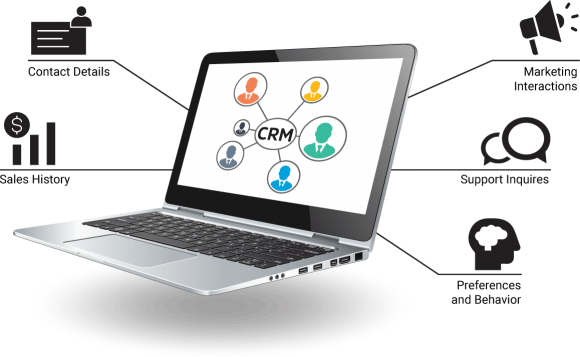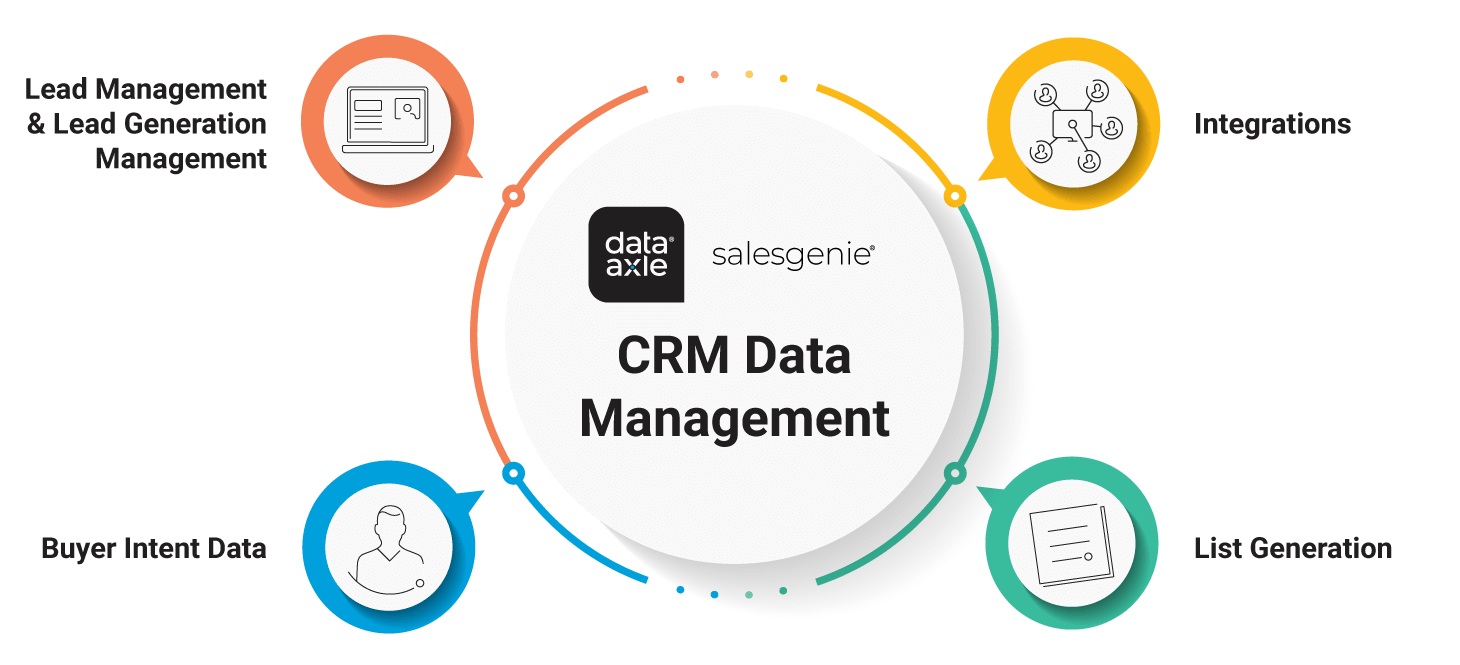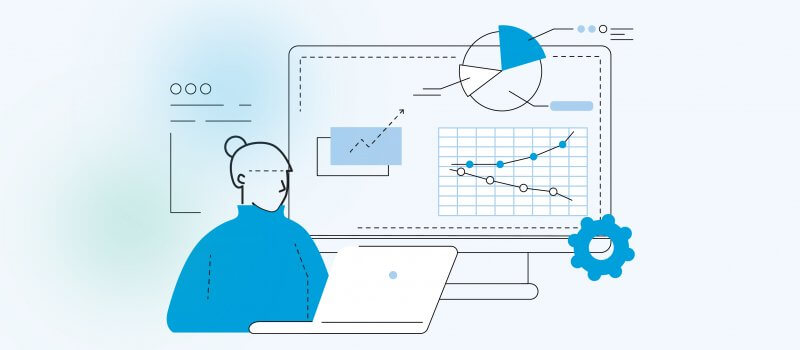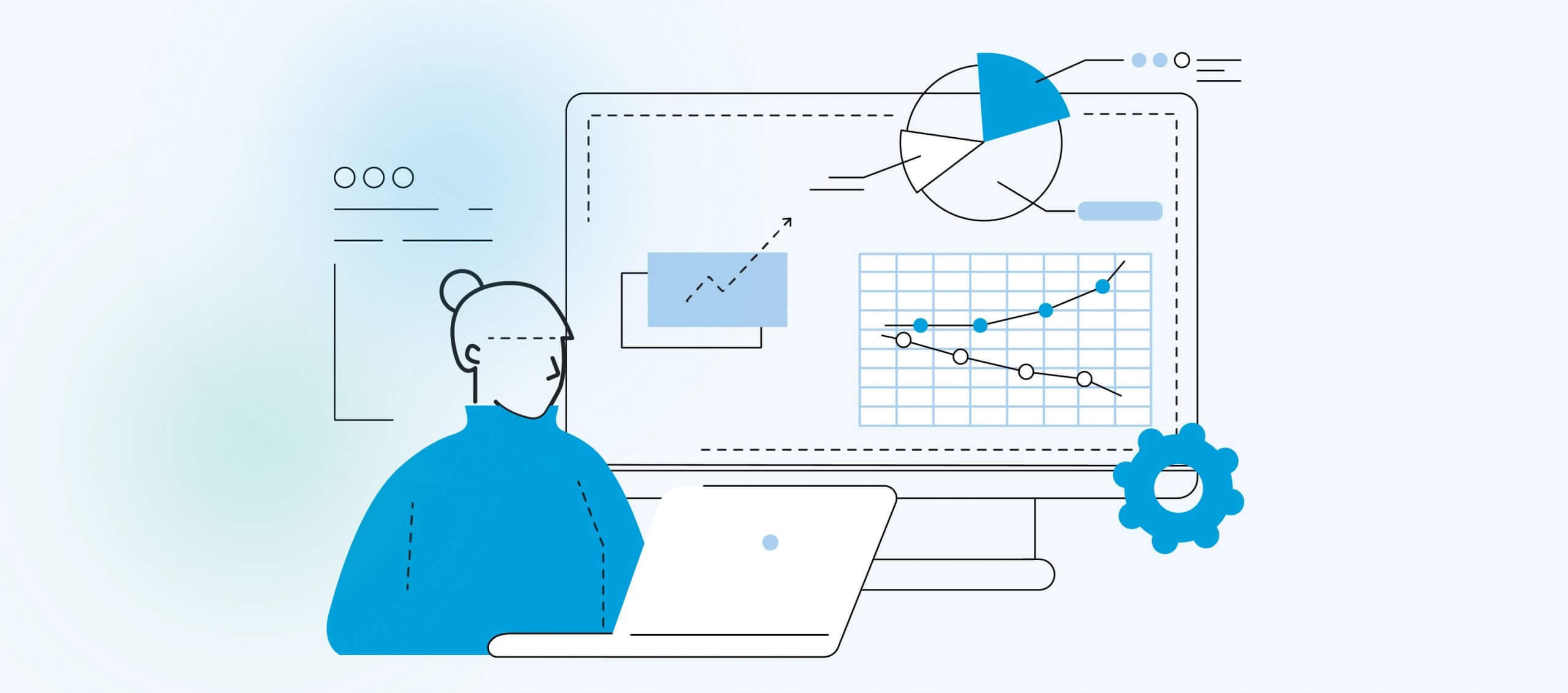Imagine trying to solve a puzzle where some pieces are missing, others are from a different puzzle, and a few don’t even fit—frustrating, right? That’s exactly what happens when your customer data is fragmented or scattered across multiple systems. By centralizing your customer data, you can bring all the right pieces together to give you a complete and accurate picture of your customers.
Challenges of Managing Fragmented Customer Data
Having centralized customer data sounds nice, but for many SMBs, it isn’t the reality today. Many still struggle with fragmented data, which can lead to the dreaded data silo—where different departments have different data and use separate tools. This can lead to outdated information, inconsistent customer interactions, and confusion across departments. Manual errors can also pop up when managing fragmented data, increasing the risk of mistakes.
All in all, fragmented data typically leads to missed opportunities like building deeper customer relationships and driving growth.
But it doesn’t have to be this way! Centralizing your customer data is a goal that is very much achievable. Keep reading to discover how centralizing data benefits your business.
What Is Centralized Customer Data?
Centralized customer data means storing all your customer information in one unified location, rather than scattering it across spreadsheets, emails, or multiple software tools. Think of it as creating a main location—or one source of truth—for your customer data.
Why Is Centralized Customer Data Important?
Centralizing your customer data gives you a complete, real-time view of your customers. From a single location, you can view customer interactions, purchase history, preferences, and behavioral patterns. With this 360-degree view, you can personalize your marketing, provide better customer service, and create more consistent customer experiences.
From a business perspective, centralized customer data can help reduce errors or redundant work, improve business and employee efficiency, and equip you to make smarter business decisions. Plus, with accurate, accessible data, you can uncover trends, optimize strategies, and build stronger relationships that drive long-term success.
Technology Needed to Centralize Customer Data
Sold on the benefits of consolidation and centralization? Now, let’s go through the different technologies that can make it happen for you.
There are many types of applications and tools you can use for centralizing. Examples include customer relationship management (CRM) systems, customer data platforms (CDPs), marketing automation platforms, and enterprise resource planning (ERP) systems.
Each tool serves a different purpose, and selecting the right one depends on your data needs:
- Managing multiple marketing channels? Use a marketing automation platform.
- Want to have a single view of each customer? Consider a CDP.
- Need to consolidate customer, sales, financial, and operational data? An ERP may be your best bet.
Now you may be asking, ‘What about a CRM? What’s a CRM used for?’ ‘What’s at risk if I don’t use a CRM?’
All great questions! Read on get your questions answered and discover why using CRMs for centralized customer data management is a smart move for you and other SMBs.
And with a lead management tool like Salesgenie® Lead Manager, it becomes easier to manage, analyze, and use your data.
What is a CRM?

A CRM is a software tool that allows you to capture, store, organize, and manage pertinent customer information in one place. Customer info stored in CRMs can include:
- Contact details
- Sales history
- Marketing interactions
- Support inquires
- Preferences and behavior
Having all this information in one place not only gives you a complete view of each customer, but it also helps streamline communications, automate tasks, and uncover useful insights.
Why SMBs Need to Centralize Customer Data In a CRM
By now it should be clear that centralizing customer data offers a lot more than just organization, it directly impacts business growth and success! And without the correct technology, like a CRM platform, you risk missing opportunities, wasting time, and delivering inconsistent customer experiences. Here are five key reasons why SMBs need to prioritize CRM data centralization:
- Enhanced Efficiency: CRM data management and consolidation eliminates the need to search through multiple systems or spreadsheets. With a CRM, your team can quickly access all the same customer information, saving time, reducing manual processes, and keeping everyone up to date and informed.
- Improved Customer Experience: Customers expect personalized interactions. With CRM data consolidation, you gain a complete view of each customer, allowing you to tailor your communications, take customer-specific notes, schedule follow-ups, and build stronger relationships.
- Accurate Data: Fragmented data often leads to duplicates, outdated information, and errors. A CRM, combined with a healthy data hygiene plan, ensures your records stay clean and consistent by offering real-time updates, audit trails, and data quality reports. Additionally, CRMs can help you remain compliant with laws, regulations, and industry standards by keeping records of data usage, consent, and security measures.
- Informed Decisions: When you have single view of customer data, you can analyze it more effectively. Most CRMs have built-in dashboards and native applications to help uncover a wealth of insights about your business, such as sales win/loss analysis, customer journey tracking, lead scoring and conversion rates, customer lifetime value, and much, much more. With these insights, you can be empowered to make smarter business decisions.
- Scalability: As your business grows, so too will your repository of customer data. Similarly, CRMs are built to scale right alongside your business. Many CRMs incorporate AI, machine learning, and automation. As your business grows, these tools can help refine processes, streamline operations, enhance customer interactions, and improve data management.
4 Steps to Centralize Your Customer Data in a CRM
Centralizing your data might sound daunting, but it’s simpler than you think. Here’s a step-by-step guide:
- Assess Your Current Tools: Start by evaluating your existing systems and data. Identify gaps or redundancies and clean up outdated or duplicate records.
- Integrate Your Tools: Choose a CRM that integrates seamlessly with the tools you already use, such as email marketing platforms or accounting software. Data Axle’s Salesgenie, for example, offers robust integrations to make the transition smooth.
- Train Your Team: A CRM is only as effective as the people using it. Provide training to ensure your team understands how to use the system and leverage its features.
- Set Goals and Measure Results: Establish clear goals for your CRM, such as reducing response times or increasing sales conversions. Built-in analytics can help you track your progress and refine your strategy.
How Salesgenie Supports Data Centralization for SMBs

Salesgenie is designed to help SMBs centralize and leverage customer data effectively. Here’s how it supports your business:
- Lead Management & Lead Generation Management: Salesgenie Lead Manager simplifies lead management by allowing you to filter and manage your leads in one easy-to-use tool.
- Integrations: Seamlessly connect with your existing tools, including CRM integration, reducing disruptions to your workflow.
- Buyer Intent Data: Understand what your customers are looking for and when they’re ready to buy.
- List Generation: Build targeted customer lists based on unified customer profiles.
With Salesgenie CRM data management, you can turn your customer data into a powerful asset for growth.
Takeaways: Why a CRM Is Essential for SMBs
Centralizing your customer data is essential. A CRM can be a game-changer for business growth. By consolidating your data, you can:
- Save time and reduce manual processes
- Deliver personalized customer experiences
- Make informed decisions with accurate insights






